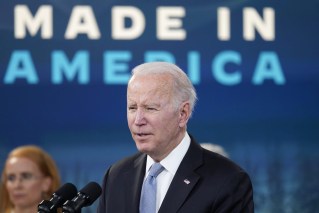Poets of the outback: How Cloncurry turned spotlight on powerful rural women
After a life of enduring outback toil and the loss of several babies, Mary holds a grandchild in her lap with a “down-turned smile, sad eyes” and “gnarly hard-boiled hands”.

Cloncurry Mayor Greg Campbell says the Cloncurry Poetry Prize celebrates strong women from the outback. (Image: Supplied)
NSW poet Penny Lane’s poem Remembering Mary, which conjures up a vivid and stirring image of women’s work in Australian history, has won the $10,000 Cloncurry poetry prize.
Among the most lucrative poetry awards in Australia, the prize was founded by outback Queensland’s Cloncurry Shire Council in 2021 as a way of showing there is more to the bush than heavy industry.
Lane’s poem remembers her husband’s great-great grandmother Mary Bassett Lane, who left England in the 1860s with her husband and children to make a new life on a pastoral station.
The poem follows Mary as she leaves England on the Golden City immigrant ship, where an infant son is taken by a typhoid outbreak.
Lane explores how Mary might have felt about living on stolen land, as she navigated a lonely life of child-bearing, the loss of two daughters, farm work, washing, baking and keeping snakes at bay.
“I am particularly interested in exploring the experiences of women in Australia’s history, and recording them in poetry,” she said.
“Three of my great loves are family, poetry and being in the outback, and I was able to combine the three in creating my poem.”
Judges praised Ms Lane’s use of imagery and skilful language.
“Typifying the struggles of early female pioneers who helped lay the foundations for life today, the character of Mary is a tribute to all those who endured and is symbolic of outback womanhood,” the judges said.
The theme of the third Cloncurry prize was “outback heroes” and Lane was announced as the winner on Friday night.
Many of the runner-up and commended poems feature the role of women in the outback, Cloncurry mayor Greg Campbell said.
“These heroic co-workers reflect the history of many of the families of the region through the grandmothers, mothers and aunts … who have often, from behind the scenes, woven the family and community threads together.”










